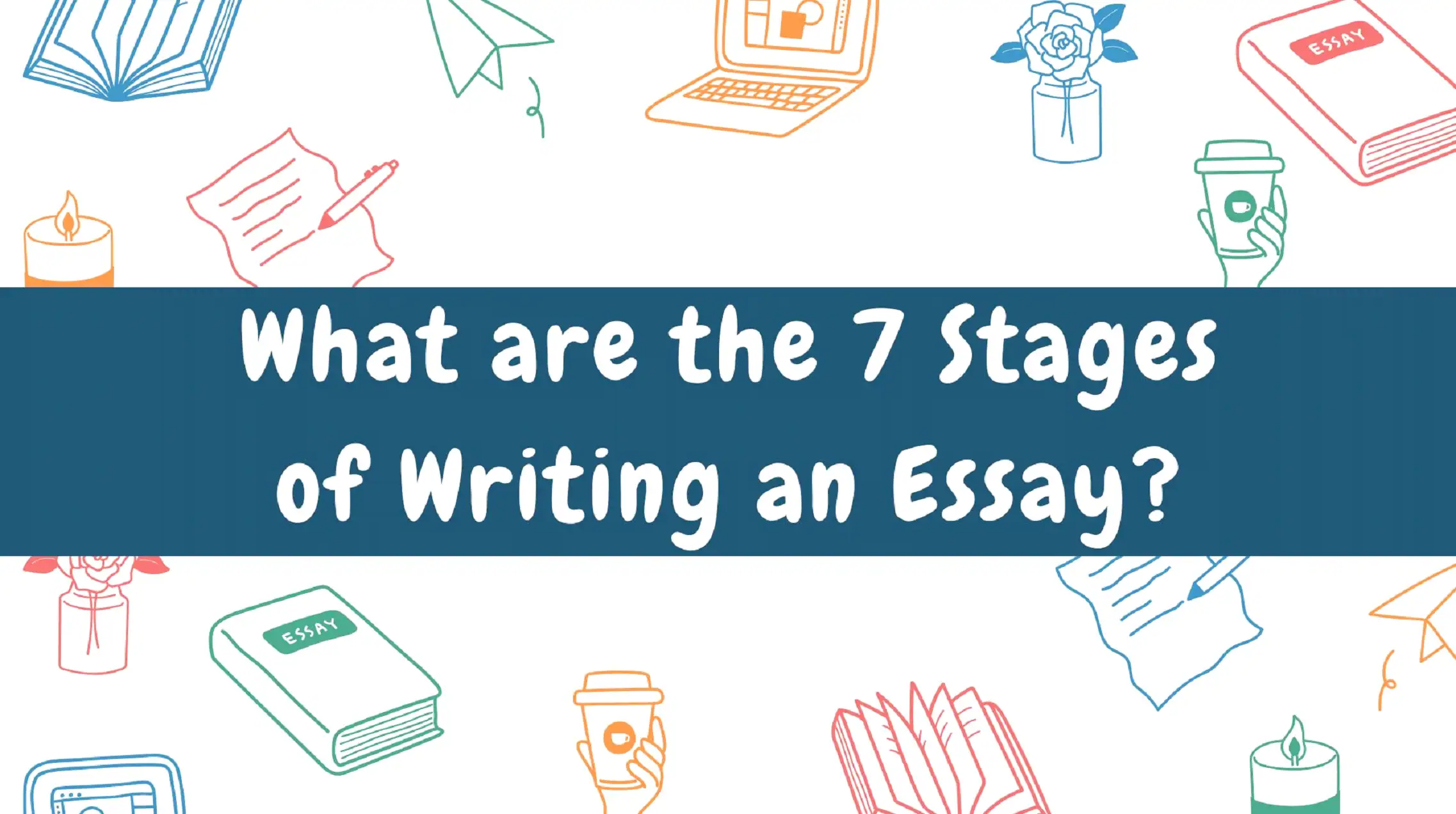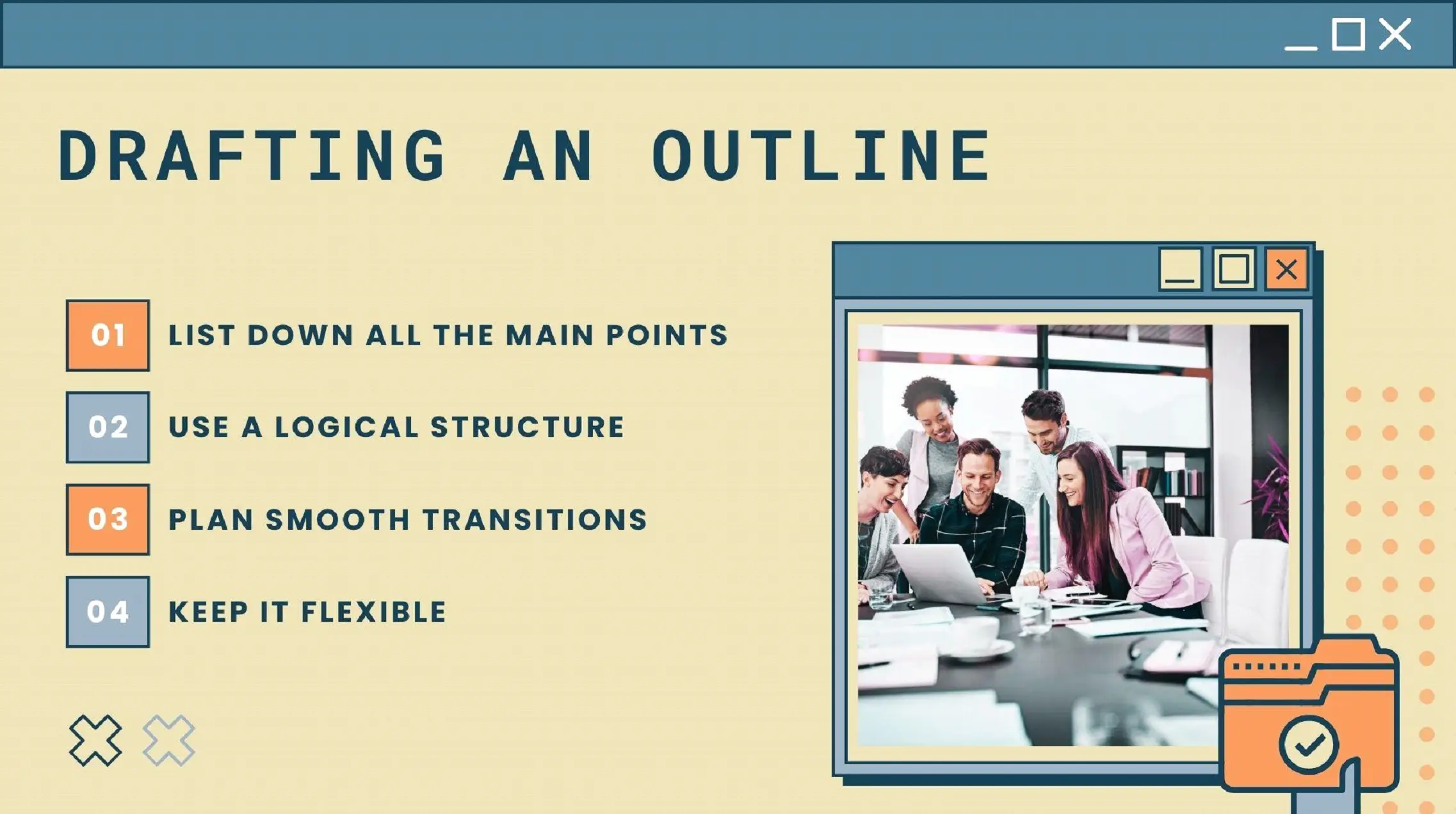What are the 7 Stages of Writing an Essay?
Published by at February 21st, 2025 , Revised On February 21, 2025
Are you new to essay writing? If so, you might face lots of issues with it. But don’t worry at all. Creating an essay is not as difficult as it seems. However, you must first understand the stages of essay writing. Understanding them can make the entire process seamless and manageable.
Without further ado, let’s get ourselves acquainted with them!
1. Understanding the Subject
Before you write even a single word, understand the subject or topic of the essay first. It’s arguably the most crucial stage. Generally, many essay writers don’t understand the subject. They read it once and start writing on it. No matter what, you must not make this mistake.
Instead, before you begin, clearly grasp the topic.
To do so, you must read all the guidelines your institution provides. This will help you learn which language to use, where to gather information, and which arguments to add to your essays. Apart from these things, make sure to know your readers as well. For instance, they should know their preferences and analyse their topic understanding. Once you know all these things, the rest of the work will become easier.
2. Research and Brainstorming
Once you understand the subject, the next step is to gather relevant and accurate information from reliable sources. Research is the backbone of essay writing. The more you research your topic, the better it is for you. Research can provide various benefits, including;
- Enhance topic understanding
- Improve accuracy
- Find knowledge gap
- Support and strengthen arguments
- Build credibility and trust
- Prevent plagiarism
However, never use unreliable sources for research and brainstorming. Whenever you search for relevant and accurate essay data, use only trusted academic sources, significantly research articles, theses, books, newspapers, etc. Never trust other sources like blogs, articles, videos on YouTube, and Wikipedia pages. Yes, they are helpful and informative, but they are not 100% reliable.
3. Developing a Thesis Statement
A strong and clear thesis statement is a must for essays. It is the main idea or central argument guiding readers about essays. Therefore, before you start the writing process, you should craft the thesis statement.
However, make sure it’s clear, debatable, and specific while writing it. To write an effective thesis statement, consider the main point of your essay and what you want to convey to your readers. Moreover, it must not be vague. Otherwise, it won’t be able to communicate anything. Instead, it will only confuse your readers.
4. Drafting an Outline
An essay outline works as a roadmap for writing. Craft the outline before starting the writing process, whether you are writing a descriptive, expository, persuasive, or any other type of essay. It can help you stay focused and on the right track.
Here are some simple strategies for writing a clear outline for an essay;
- List Down all the Main Points: When you begin the outline creation process, list down all the main points of your essay. It will help you know what things you must mention in your study.
- Use a Logical Structure: Create a logical outline structure. Arrange points so that they flow naturally.
- Plan Smooth Transitions: When creating the outline for your essay, consider how you will smoothly transition from one idea to another.
- Keep it Flexible: Never create a rigid outline. You might need to amend it later to enhance your arguments and improve your essay’s structure.
5. Writing the Essay
Now comes the time to write your essay. However, now that you have understood your subject, gathered enough material for the essay, developed a thesis statement, and drafted an outline, writing is a piece of cake. Still, never take it lightly. Otherwise, all your time and effort spent on the first few stages will be unsuccessful.
If you want to write an outstanding and thought-provoking essay, here are some helpful tips for you;
- Start with a Strong Introduction: Start your essay with a hook statement or interesting facts to catch readers’ attention.
- Use Relevant Vocabulary: When writing an essay, use the relevant terminologies and vocabulary to enhance credibility and clarity.
- Add Evidence: Support your arguments and claims with substantial evidence. Avoid writing vague and unclear statements that you cannot prove.
- Follow One Idea, One Paragraph Rule: Each paragraph of your essay must focus on a single argument or point. Never write multiple ideas in the same section.
- Use Transition Words: When you jump from one idea to another, use transition words to connect ideas and enhance the reading experience.
- Avoid Repetition: Avoid repeating different words and phrases to make your essays more impactful.
6. Ensuring Uniqueness
Although many ignore this process, considering their work is original. However, you must not skip this step. Run a plagiarism test to spot all duplicate segments in your text. A reliable plagiarism checker can help you find intentional and unintentional plagiarism. Once they are spotted, remove them immediately.
The most advanced and efficient strategy to remove plagiarism from text is using an online paraphrasing tool. A trusted paraphrase tool can instantly recreate your sentences with more suitable vocabulary and bless them with a fresh perspective without changing their original meaning, making your text unique and plagiarism-free. Moreover, it will also refine your text and enhance its impact.
7. Proofreading and Editing
Here is the last step of essay writing. After writing, now is the time to proofread and edit your essays. It’s the process that can revamp your essays and make them more interesting and impactful. I’m never satisfied with the first draft. Always try to improve it as much as you can. And for that, you must ruthlessly proofread and edit your essays.
Proofread them just to find imperfections in them. When you proofread your essay using this approach, you will find many errors that must be rectified. Apart from manual proofreading, you can also leverage proofreading tools like Grammarly or take help from professional proofreading and editing services. They will spot advanced grammar errors in the text and help you quickly remove them.
Conclusion
Writing an essay is not tricky if you follow the proper steps and strategies. However, if you don’t follow the correct process, you might make many costly mistakes that can eventually ruin your effort. Here, we discuss all the seven stages of essay writing. Follow them, and you will surely be able to uplift your writing game.
Table of Contents
FAQ’s
To write a compelling introduction, you can try multiple techniques. For instance, you can start by providing background information to set the context, ask a thought-provoking question, tell a short story, state a bold statement, or use a powerful quote.
The quality of an essay usually depends on multiple key factors, including;
- Clarity and coherence
- Strong thesis statement
- Relevancy and accuracy
- Research
- Solid arguments
- Originality
For effective research, make sure to use Google Scholar and similar platforms. They will help you find relevant studies, including books, research articles, and reports. Moreover, you can use your institute’s digital library for research purposes.
In some cases, you can. And in others, you must not. It depends on various factors, including the essay’s topic, type, and purpose. For instance, you can add your experiences when writing a personal or reflective essay to support an argument, connect with readers, or demonstrate your critical thinking. On the other, avoid adding your experiences when writing academic essays or when your experiences don’t provide any value to readers.
To avoid plagiarism and ensure uniqueness in essays, try these techniques:
- Write everything yourself
- Do enough research
- Use your distinctive writing style
- Cite all your sources clearly
- Detect and remove plagiarism








